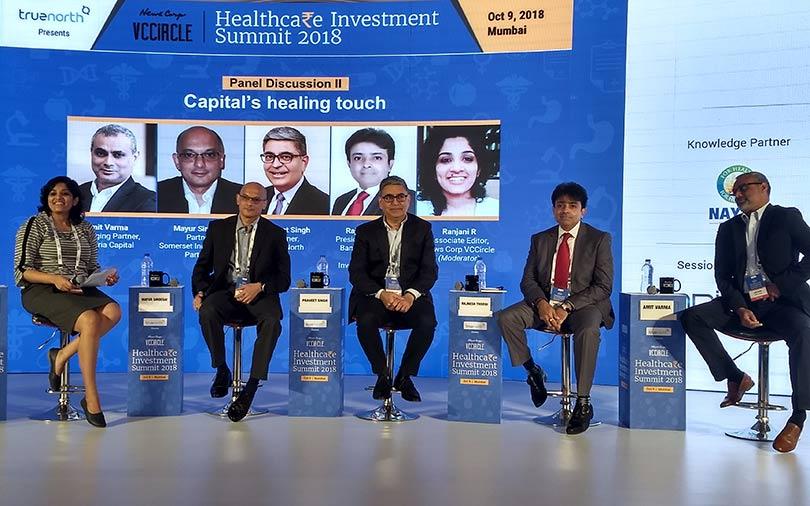The central government’s health insurance scheme Ayushman Bharat will drive more money as well as more doctors towards hospitals in Tier-II cities, said panellists at News Corp VCCircle's Healthcare Investment Summit 2018 on Tuesday.
The panellists agreed that while demand for healthcare, particularly primary care, has increased, nothing has been done to address the lack of supply.
“Scaling up assets and getting on board nurses and doctors have been tough in Tier-I cities. Unless something dramatic happens, there could be a situation where we push up demand and we don’t have the bandwidth for supply,” said Praneet Singh, partner, True North.
According to him, Ayushman should not turn out to be like Obamacare, where there was an attempt to build demand but zero attempt to build the supply.
However, Rajnesh Trivedi, president, investment banking, and head of sustainable investment banking, Yes Securities, said that, while the more brand-conscious doctors may not want to go to Tier-II cities, there are young doctors who want to make a name for themselves in smaller markets, and they will be able to address the supply gap.
He further said that it was difficult to convince investors about the potential of Tier-II hospital chains but with Ayushman, they have realised that the base of the market will change significantly.
“Because of price controls and making healthcare more affordable, there is a price constraint. This will impact valuation. To overcome this constrain, we must look at Tier-II hospital chains. The limitation has been in the veracity and genuineness of the numbers. Chains with good numbers, credibility and brand have stickiness with their patients and doctors. Ayushman will change how capital markets and fundraising will happen for these hospitals,” he explained.
Problems investors face
According to Amit Varma, managing partner, Quadria Capital, the issue that investors face is to find opportunities in these markets. “Lack of digitisation of records, quality standards and quality of manpower does not give investors the comfort to go out and track regional chains,” he said.
“Lastly, we do not publish data. I don’t know if the Wockhardt, Manipal, Fortis, and Aster do any better. Nobody talks about numbers. This country requires a baseline regulatory framework where digitisation has to be forced, paying capabilities have to be addressed and reimbursements – money coming back to the hospital — have to be looked at seriously,” said Varma.
A major problem in the healthcare space, particularly primary care, is reaching the last mile. “While technology will play a certain role, how do you make more impact in primary care? If we can have tech today around primary healthcare, that will, to a large extent, solve the problem with respect to how healthcare reaches the last mile,” Trivedi explained.
According to Trivedi, data is where investments can happen. “The National Healthcare Accounts have just got published. It’s data of 2014-15,” he said.
Varma said that though many new healthcare firms are coming up, issues persist around a lack of national policy over how data should be shared. “All of us are creating data but no one is analysing it. What has worked in most developed nations is that data is not my personal property, it’s something out in the public domain which can be accessed by all,” he said.
Advice to healthcare companies
Varma said that digitisation is key and that reproducible, clean data, which can be used for everything—insurance, patients and doctors—is a must.
For Trivedi, data is important but sensitive. He believes digital home healthcare is a key emerging area and that offline pharmacies will soon go online.
According to Singh, healthcare is a long-term business. One area where private equity investors have lost focus is quality patient service. And policy, he believes, takes two steps forward and one step back.
For Mayur Sirdesai, partner, Somerset Indus Capital Partners, medical technology (med-tech) is where large companies will emerge. “We are bullish on med-tech. Though the companies are small, there is scale coming into the sector. This is because many of these companies are building their own products.”






